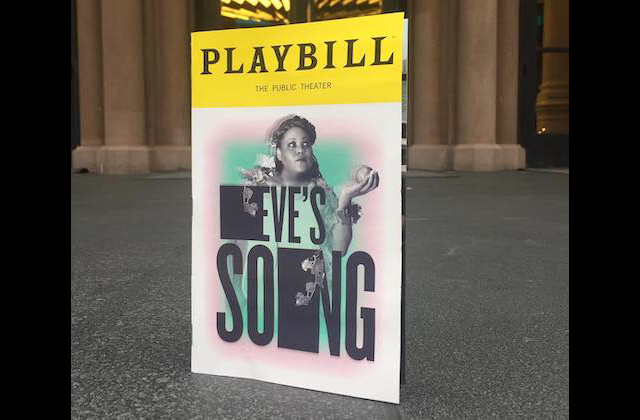Soraya Nadia McDonald of The Undefeated writes that a theme familiar to African Americans—the trauma of sudden death, from police and other assailants—permeates the current New York City theater season.
"It is impossible to tell the stories of Black life in America without also considering Black death," McDonald wrote yesterday (December 10). "These plays perform a vital reckoning with racial injustice and the various ways it turns lethal, and the minutes, hours and years spent processing those killings and the way they chip away at even the hardiest of souls. Taken cumulatively, however, a weight begins to amass with each new work."
The plays she describes include both Broadway productions like "American Son" and off-Broadway ones like "Eve’s Song," which recently concluded a run at The Public Theater. "Eve’s Song" tells the story of a Black woman working through a divorce whose daughter comes out as queer while the recent killings of Black people permeate their dining room conversations. In one scene, dancer Rachel Watson-Jih portrays a Spirit Woman and interprets the death of Kerrice Lewis, a Black lesbian killed in Washington D.C. this year. Playwright Patricia Ione Lloyd says that this scene, and others featuring Spirit Women, seeks to center the voices of Black women and girls who are being killed in silence:
rnt
"Eve’s Song" is built around death: The centerpiece of its set is Ellis Wilson’s "Funeral Procession" (the same painting that hung in the Huxtable house on "The Cosby Show"). The Spirit Women, who represent the ghosts of Black women who were murdered in real life (along with Lewis, Lloyd honors Kathryn Johnston and Amia Tyrae Berryman), float through a modern, suburban, middle-class Black home where unpleasant truths keep pushing through the walls and floors as its matriarch desperately tries to camouflage them. By the play’s end, the Spirit Women will claim another member for their sorority.
t
“The struggles, injustices and killings and murders of Black women, Black girls and Black trans women don’t receive the media attention, don’t receive the collective mourning that other deaths do,” Lloyd said. “We are a demographic that is easily pushed out of the consciousness when it’s uncomfortable to society at large.”
t
In response, Lloyd wrote a symbolic physicality into the Spirit Women, who, in rearranging the set for scene changes, push themselves from the margins of the stage to its center.
Read more of McDonald’s thoughts on plays from this season at TheUndefeated.com.
